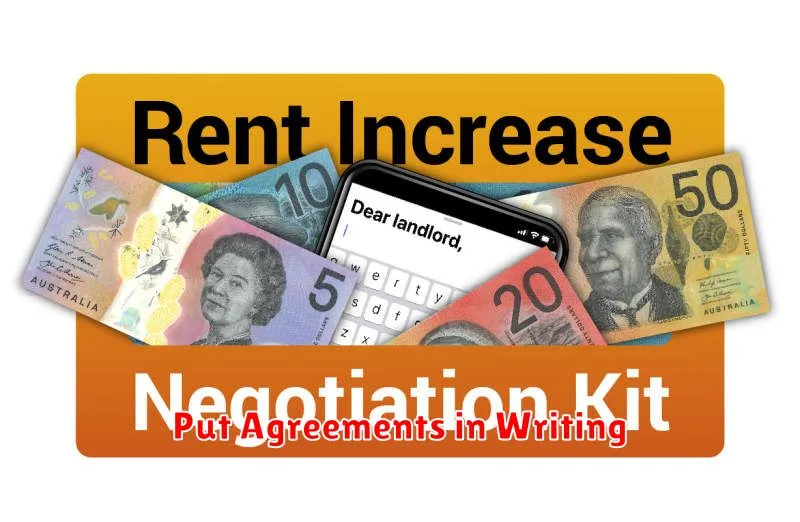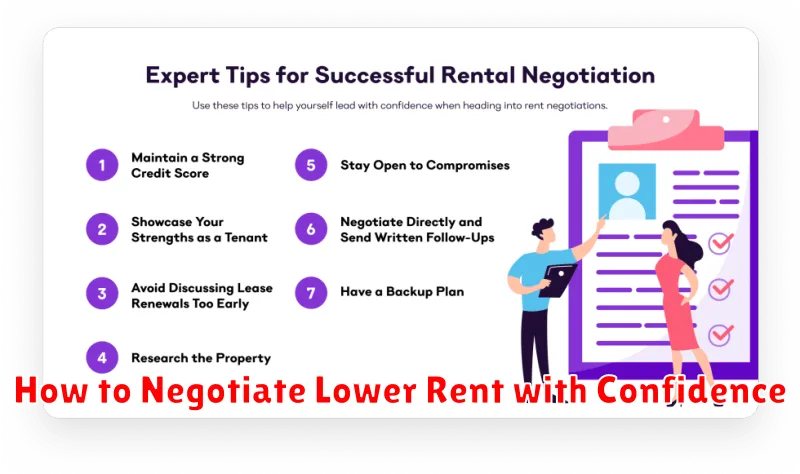Are you tired of escalating rental costs eating into your budget? Do you feel like you’re paying too much for your current living space? Learning how to negotiate lower rent can empower you to take control of your housing expenses and potentially save significant money. This article will provide you with practical strategies and proven techniques to confidently negotiate rent with your landlord. We’ll cover everything from researching comparable rental rates in your area to crafting a persuasive argument and navigating potential counteroffers. Mastering these skills can not only result in lower monthly payments, but also help you establish a more positive landlord-tenant relationship.
Negotiating rent effectively doesn’t have to be intimidating. Whether you’re renewing your lease or considering a new apartment, understanding the market and approaching the conversation strategically can significantly increase your chances of success. This guide will equip you with the tools and knowledge necessary to negotiate your rent with confidence, including tips on timing your request, demonstrating your value as a tenant, and presenting compelling reasons for a rent reduction. By following these proven methods, you can potentially secure a more affordable living situation and keep more money in your pocket.
Know the Local Rental Market
Before entering negotiations, research the current rental market in your area. Understanding average rent prices for comparable properties gives you a strong foundation for your argument.
Vacancy rates are another important factor. A high vacancy rate suggests landlords may be more willing to negotiate to avoid empty units. Conversely, low vacancy rates give landlords more leverage.
Consider seasonal trends. Rental prices often fluctuate depending on the time of year. For instance, you might find better deals during the off-season.
Highlight Your Reliability
A strong track record as a tenant is a powerful negotiating tool. Landlords value reliable tenants. Emphasize your history of on-time rent payments. If you’ve always paid on time, or even early, make sure your landlord knows this.
Demonstrate your respect for the property. Mention how well you’ve maintained the unit and any improvements you’ve made (with permission, of course). A good tenant is less likely to cause problems, reducing turnover costs for the landlord.
If you have a good relationship with your landlord, don’t hesitate to mention it. A positive landlord-tenant relationship can contribute significantly to a successful negotiation.
Point Out Apartment Flaws
Respectfully highlighting any flaws you’ve observed in the apartment can strengthen your negotiating position. Document these issues clearly. This might include minor repairs needed, outdated appliances, or cosmetic imperfections like chipped paint.
Be polite but firm when discussing these flaws with the landlord. Explain how these issues detract from the value of the apartment and justify your request for a lower rent. For example, if the advertised gym is unusable, you could argue that impacts the overall amenity package and warrants a rent reduction.
Providing a written list of the issues, perhaps with accompanying photos, demonstrates your seriousness and provides the landlord with a concrete record of your concerns. This also creates a helpful reference for later discussion and follow-up.
Offer Longer Lease Terms
Landlords often prefer the stability of longer leases. Offering to sign a longer lease term, such as 18 months or two years instead of the standard 12 months, can be a powerful negotiating tool. This provides the landlord with guaranteed income for a longer period, reducing their risk of vacancy.
By offering this stability, you can position yourself as a desirable tenant and provide an incentive for the landlord to negotiate on the monthly rent.
Consider proposing a slightly lower monthly rent in exchange for the longer commitment. This presents a win-win scenario, securing you a lower rate and providing the landlord with consistent occupancy.
Ask for Included Utilities

Negotiating for included utilities can significantly lower your monthly expenses. Inquire about the possibility of the landlord covering costs for certain utilities, such as water, trash, or even internet service.
Research typical utility costs in the area to understand the potential savings. Present this information during your negotiation to demonstrate the value of including utilities in the rent.
This strategy is particularly effective in buildings where utility costs are often consistent across units. For instance, water bills in older buildings might be less variable, offering an opportunity for landlords to manage costs more predictably.
Mention Competitive Listings
Research similar properties in your area and note their rental prices. Presenting evidence of lower rents for comparable units strengthens your negotiating position. This demonstrates to your landlord that you’re aware of the market value and are prepared to explore other options if necessary.
Be prepared to specifically name buildings or complexes with similar amenities and size. Don’t just vaguely mention lower prices. Concrete examples give your argument more weight.
However, avoid sounding like an ultimatum. Frame the information as helpful market insight, suggesting a fair price adjustment based on current trends.
Negotiate at Lease Renewal
Lease renewals present a prime opportunity to renegotiate your rent. Landlords often prefer to retain existing tenants rather than search for new ones. This gives you leverage. Before your lease expires, research comparable rental rates in your area. This data will support your request for a lower rent.
Approach your landlord with a professional and respectful demeanor. Clearly state your desired rent reduction, justifying it with your research. Highlight your history as a responsible tenant, including consistent on-time payments and proper care of the property. Be prepared to negotiate and potentially compromise.
Be Polite and Professional
Approaching your landlord with politeness and professionalism is crucial for a successful negotiation. Maintain a respectful tone throughout the conversation, even if you encounter resistance. Remember, you are aiming to build a mutually beneficial agreement.
Clearly and concisely present your request, explaining your reasoning for a lower rent. Avoid emotional pleas or aggressive demands. Focus on facts and market data to support your proposal. Being prepared and organized demonstrates your seriousness and professionalism.
Put Agreements in Writing

After reaching a verbal agreement with your landlord, it’s crucial to document everything in writing. This protects both parties and prevents misunderstandings later on. A written agreement should clearly outline the new rent amount, the effective date of the change, and the duration of the agreement.
Ensure both you and your landlord sign and date the agreement. Keep a copy for your records. This written record serves as essential proof of the agreed-upon terms should any disputes arise in the future.
What to Do If Denied
While negotiating lower rent can be successful, there’s a chance your landlord might deny your request. Don’t get discouraged. Consider these options if your initial attempt is unsuccessful:
Re-evaluate Your Argument. Review your initial proposal. Did you provide sufficient supporting evidence? Is your requested decrease reasonable given the current market? Strengthening your argument with additional data might change your landlord’s perspective.
Propose Alternatives. If a lower monthly rent isn’t feasible, explore other options. Perhaps you could negotiate a shorter lease term at the current rate or request that the landlord cover certain maintenance costs.
Accept the Decision. Sometimes, despite your best efforts, the landlord’s decision is final. Weigh the pros and cons of staying at the current rent versus searching for a more affordable property.

